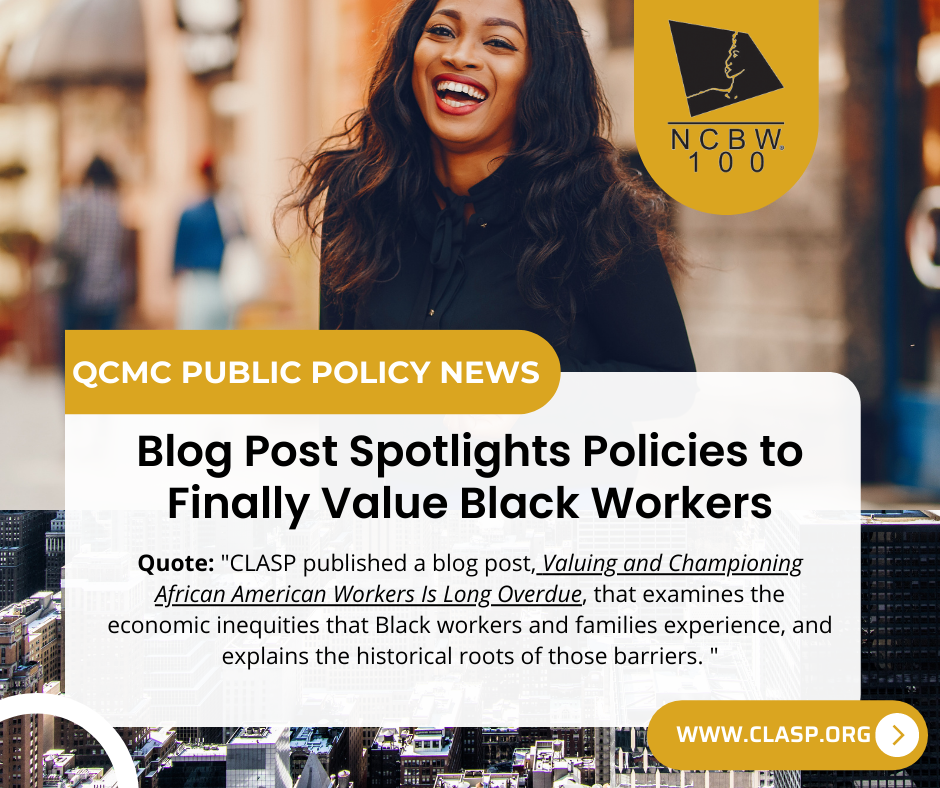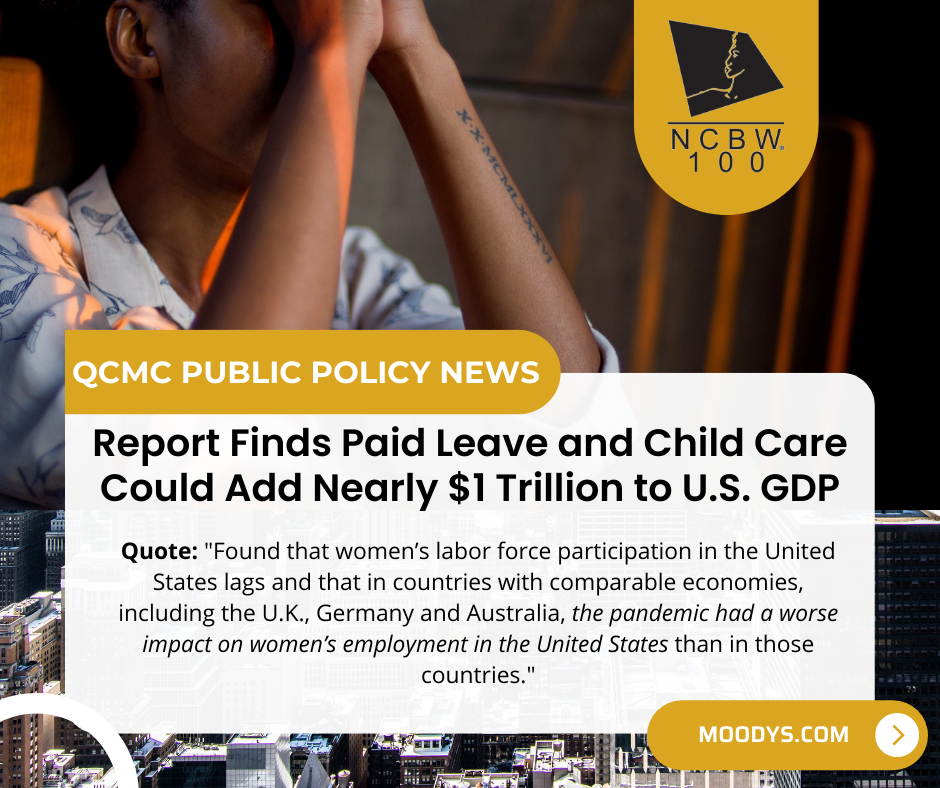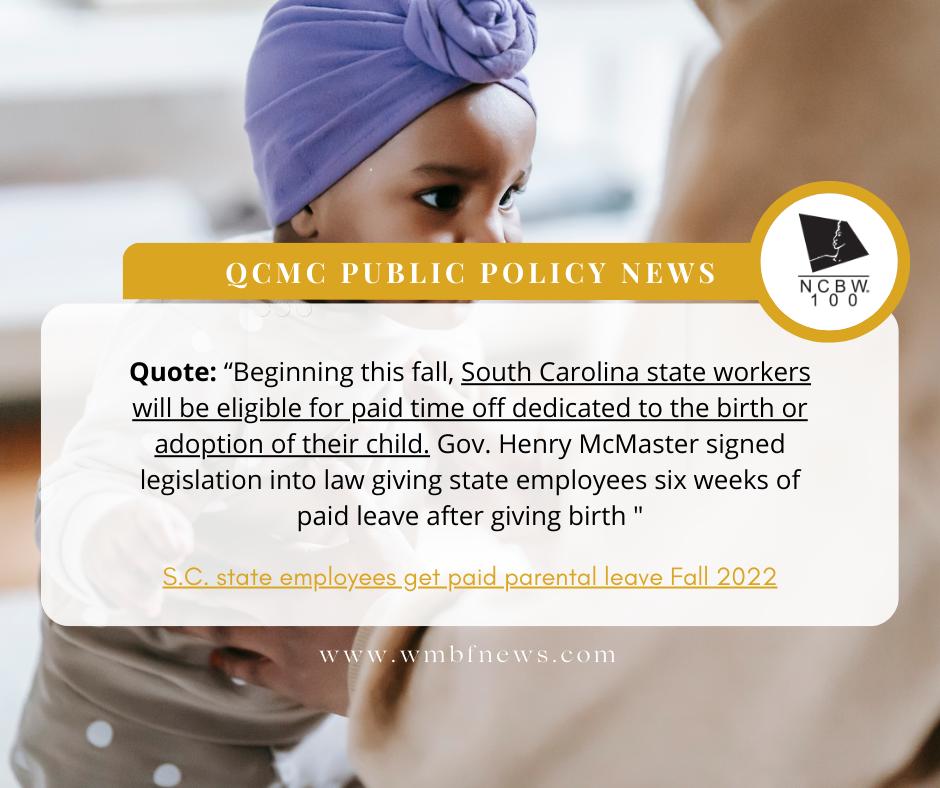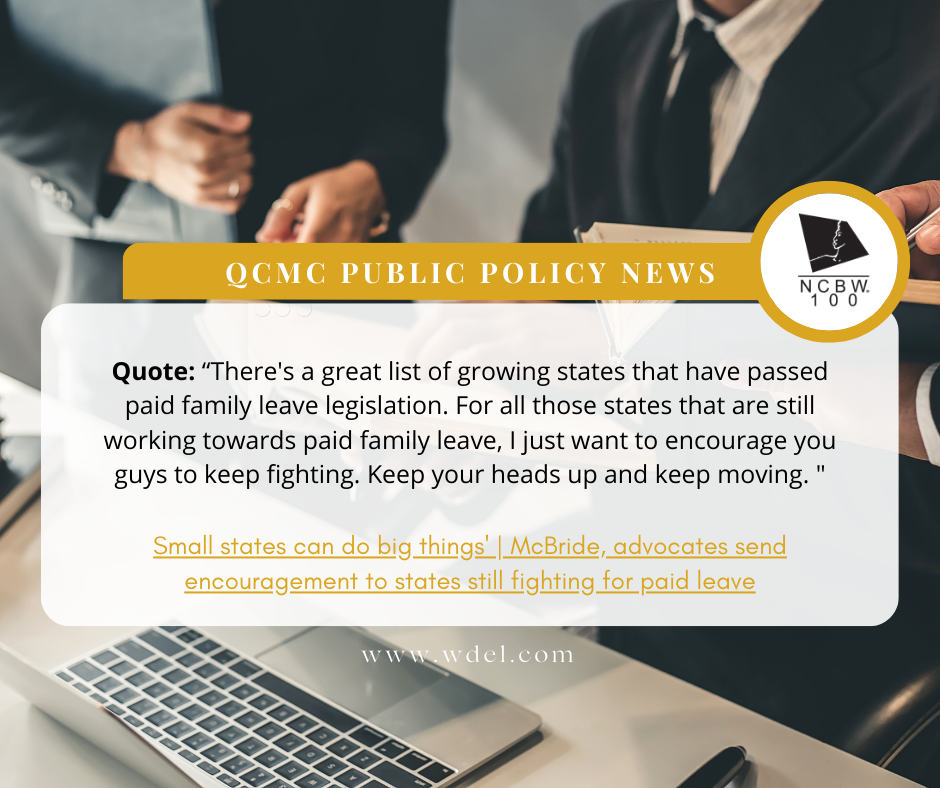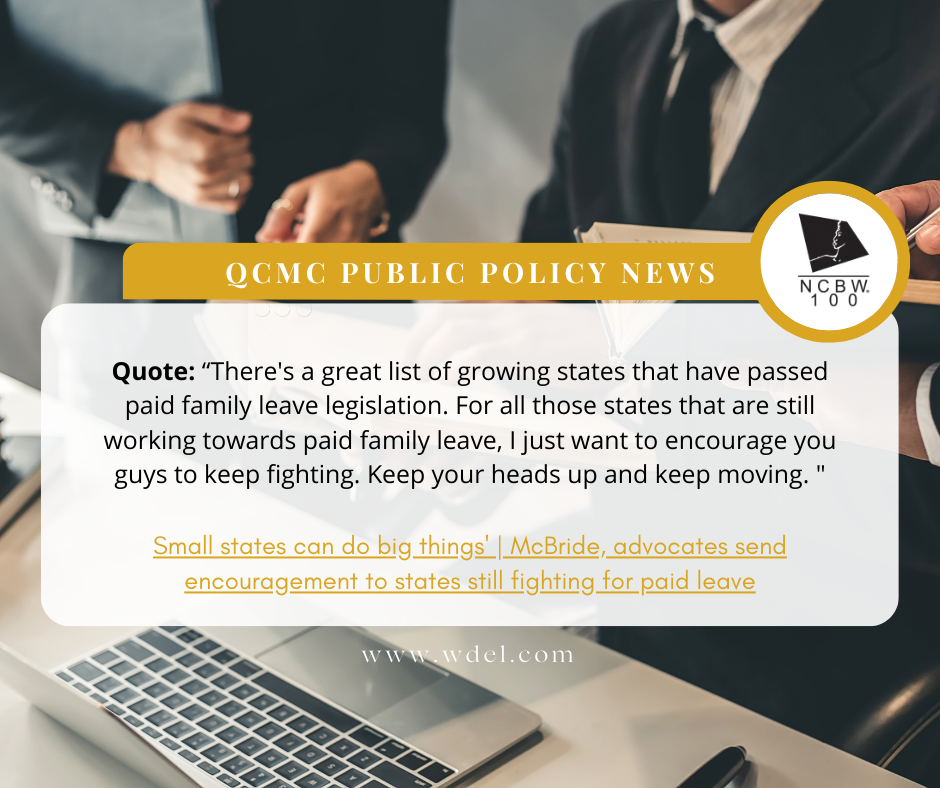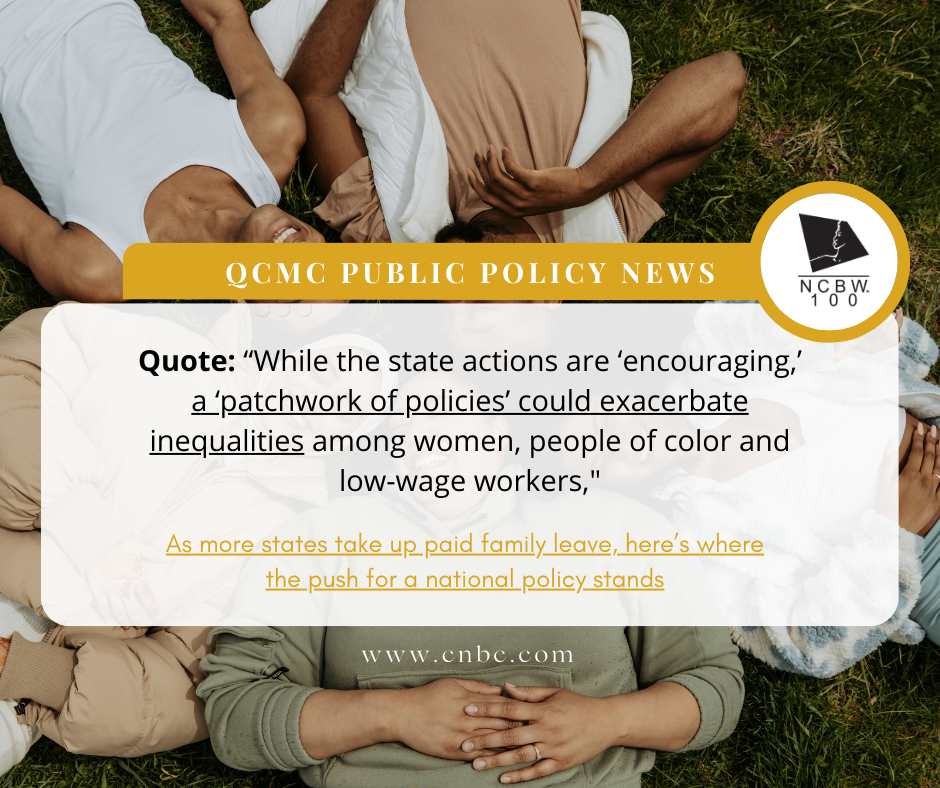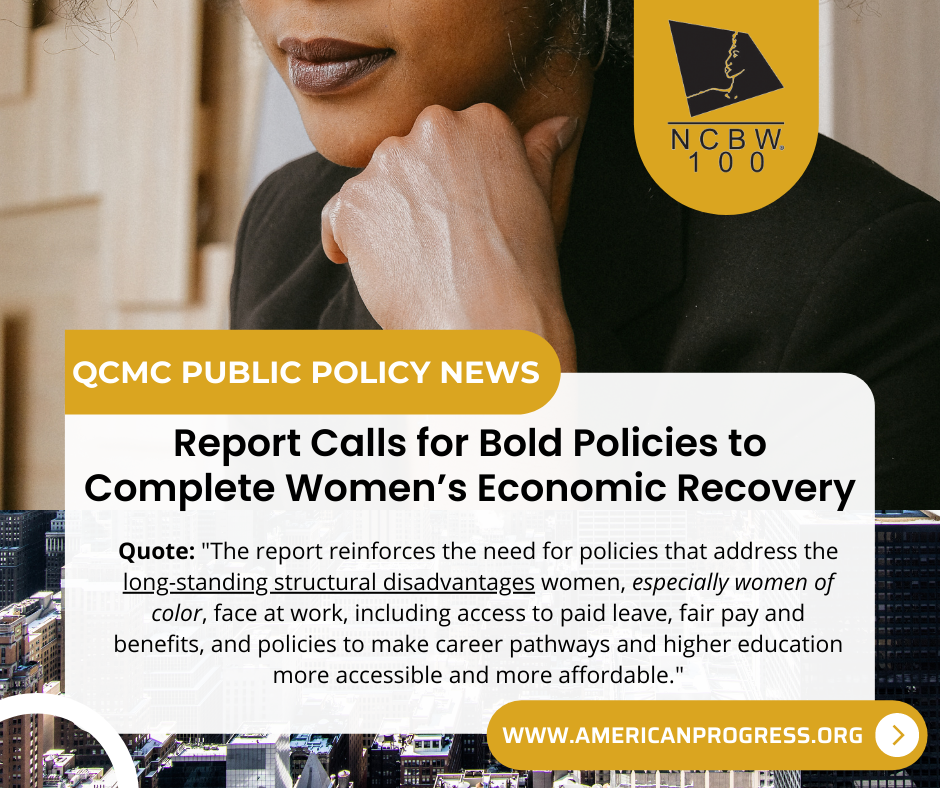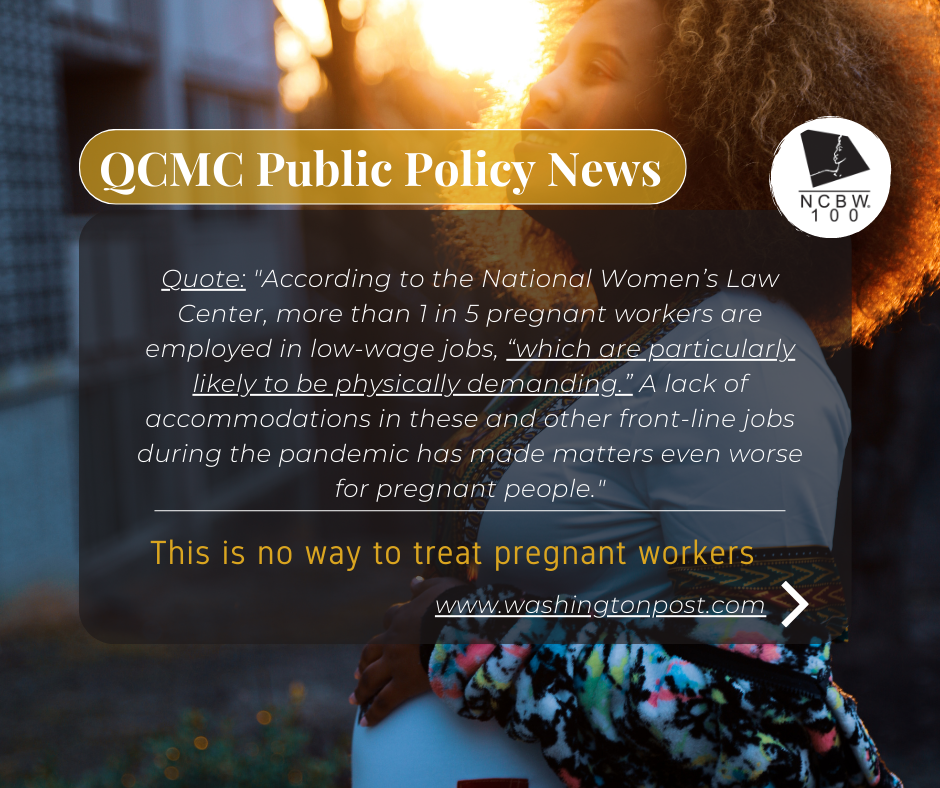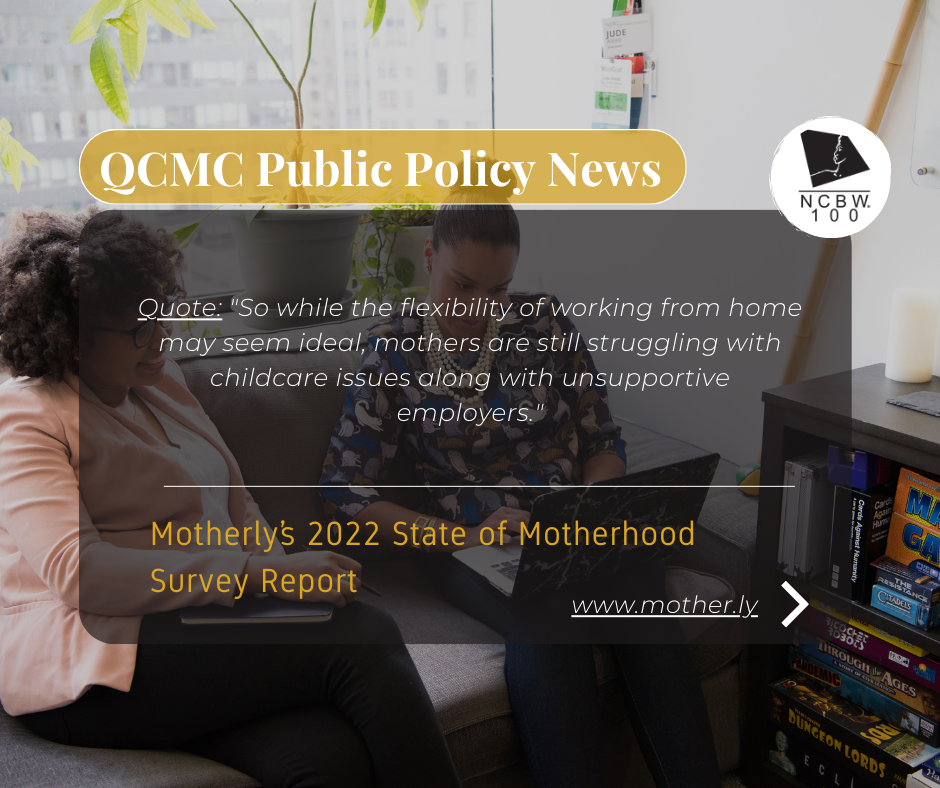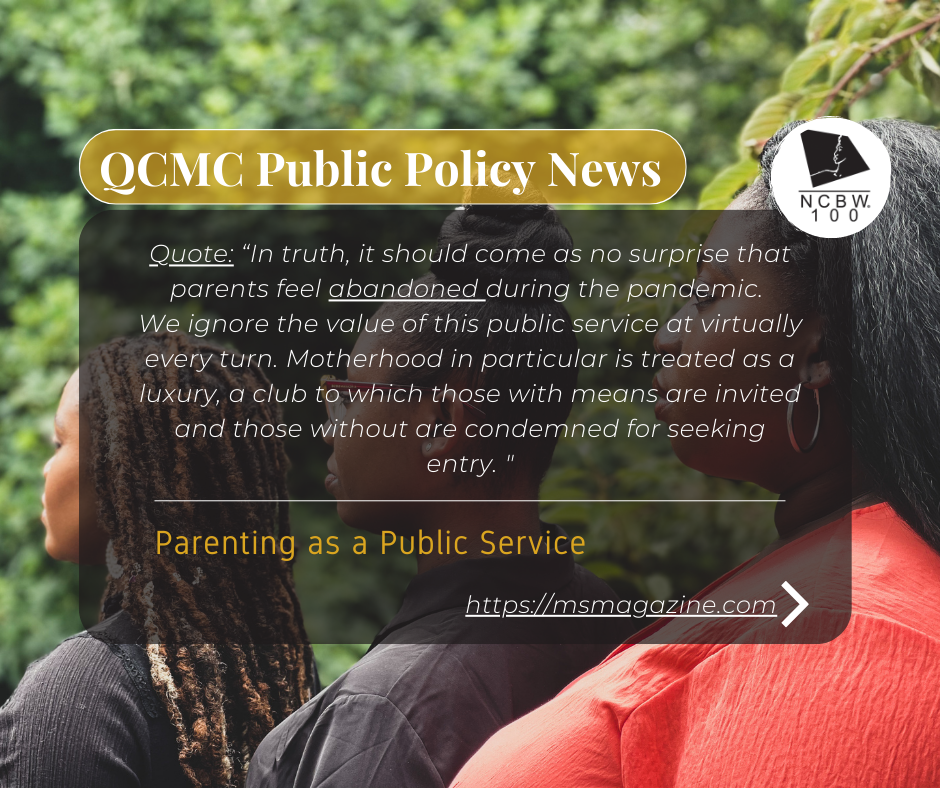|
Excerpt: CLASP published a blog post, Valuing and Championing African American Workers Is Long Overdue, that examines the economic inequities that Black workers and families experience, and explains the historical roots of those barriers. The post also points to policies that would help address these longstanding harms, including paid leave as well as other policies to improve job quality and educational and economic opportunities
0 Comments
Synopsis: A report released by Moody’s Corporation, Breaking the Bias: How Gender Equality Will Transform Economies, Finance and Business, found that women’s labor force participation in the United States lags that in countries with comparable economies, including the U.K., Germany and Australia, and that the pandemic had a worse impact on women’s employment in the United States than in those countries. The report points to United States’ lack of family-friendly policies – paid family leave, child care and universal pre-K – as a major driver of the gap between men’s and women’s labor force participation. Closing the gap by implementing these policies could add almost $1 trillion to U.S. GDP in the next decade, Moody’s projects.
Excerpt: Beginning this fall, South Carolina state workers will be eligible for paid time off dedicated to the birth or adoption of their child. Gov. Henry McMaster signed legislation into law giving state employees six weeks of paid leave after giving birth. Co-parents get up to two weeks of paid time off. State employees adopting a child or who have a foster child placed in their care will be eligible for two paid weeks’ leave. Full clip here.
Excerpt: “Events like Thursday's have an invigorating effect in those places where the fight drags on and the lack of progress can feel like a weight on those trying to move their state forward for the betterment of the working populations, according to the National Partnership for Women and Families' Jocelyn Frye.” Read Here.
Excerpt: “We are one of the only countries in the world with no form of paid leave. We invest less in child care than nearly every OECD nation. We rank 71 in women's political representation. We have one of the highest maternal mortality rates in the developed world, one that continues to rise, and until recently we did not even officially count maternal deaths. The gender wage gap and motherhood penalty barely budge. Gender-based harassment and assault remain commonplace and often unchecked. The rape kit backlog is an abomination, and out of 1,000 sexual assaults in the United States, 975 perpetrators will walk free.” Read here.
CNBC: As more states take up paid family leave, here’s where the push for a national policy stands5/24/2022 Excerpt: “At the current moment, federal efforts around a bold paid leave program are stalled,” said Adrienne Schweer, head of the paid family leave task force at the Bipartisan Policy Center. Delaware and Maryland are the latest states to add paid family and medical leave policies. While the state actions are ‘encouraging,’ a ‘patchwork of policies’ could exacerbate inequalities among women, people of color and low-wage workers, Neal said in a statement Thursday. Moreover, the policies will present challenges for employers operating in multiple regions.” Read here.
Overview: The Center for American Progress released a report, Ensuring Women’s Economic Security Requires More Than a Return to the Pre-Pandemic Status Quo, which reviews trends on women’s recent labor market experiences and outlines the impact the pandemic continues to have on women’s economic security. The report reinforces the need for policies that address the long-standing structural disadvantages women, especially women of color, face at work, including access to paid leave, fair pay and benefits, and policies to make career pathways and higher education more accessible and more affordable. Click here to retweet CAP.
Excerpt: “What is clear from the calls we receive is that the realities for pregnant workers in inflexible, low-wage or physically demanding jobs — such as cashiers, nurses, restaurant servers and retail workers, the roles deemed so essential during the pandemic — stand in sharp contrast with those of higher-income workers who have had the luxury of working from home.” Read the full article.
Excerpt: “Despite the pandemic’s effect on an increased remote workforce, 48% of mothers who are currently employed report dissatisfaction with their employer’s lack of schedule flexibility and paid time off—55% of mothers report their employer can better support them with longer, paid maternity leave. So while the flexibility of working from home may seem ideal, mothers are still struggling with childcare issues along with unsupportive employers.” Read the full article.
Excerpt: “In truth, it should come as no surprise that parents feel abandoned during the pandemic. We ignore the value of this public service at virtually every turn. Motherhood in particular is treated as a luxury, a club to which those with means are invited and those without are condemned for seeking entry. Instead of supporting mothers in those first weeks and months, we deny them paid family leave, forcing many mothers back to work just days or weeks after giving birth. (One 2015 study reported that nearly one in four employed mothers in its sample went back to work within two weeks.)” Read the full article.
|
|

